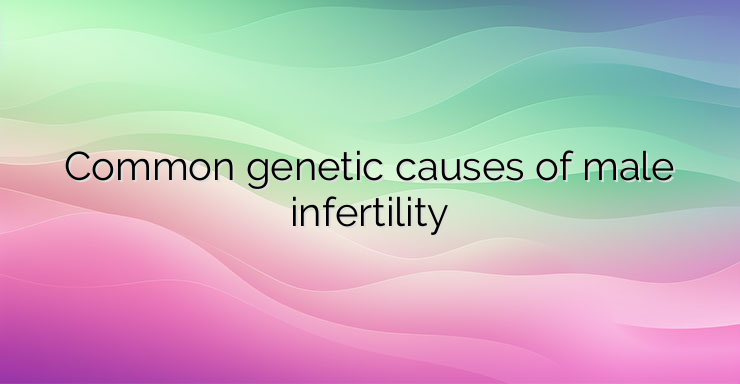Infertility is a multifactorial problem affecting approximately 15% of couples of reproductive age. This disorder affects approximately 7% of men. Like other multifactorial diseases, environmental factors as well as genetic and/or epigenetic (circumstances that cause certain genes to turn on and off) abnormalities are responsible for cases of male infertility, making it very difficult to determine their exact etiology . Genetic factors are now thought to cause about 20% of male reproductive health problems. However, this rate is expected to increase in the coming years, as detailed analysis of existing data together with technological advances, (especially in next-generation sequencing methods) may lead to the determination of the genetic origin of infertility cases currently classified as idiopathic (about 40%). Although the causes of infertility are diverse, some works classify them according to the following categories: Defective gamete production (problems that lead to infertility can occur at any of the stages of spermatogenesis and oogenesis); Obstruction (clogging) of the reproductive tract; Inflammation or immune dysfunction; Sexual disturbances. In men, it is estimated that about half of all cases of infertility are due to defective sperm production, which can include: Complete cessation of spermatogenesis; Low sperm count; Defective sperm motility; Abnormal sperm morphology; Abnormal sperm function. These abnormalities are associated with a number of phenotypes common in patients with infertility, and in most cases there is no information about their origin. In recent decades, various research groups have focused their work on studying the relationship between genetic abnormalities and male infertility. The best-documented genetic causes of these problems include Y chromosome microdeletions, chromosomal abnormalities (total or partial absence or duplication of chromosomes), and CFTR (Cystic Fibrosis Transmembrane Conductance Regulator) gene mutations. The complexity of the genetic causes underlying male infertility is partly explained by the number of genes involved in spermatogenesis (at least 2000) and is reflected in the heterogeneity of the observed manifestations of these disorders. Genetic factors contribute to the four main etiologic categories of male infertility: Quantitative spermatogenic defects; Qualitative spermatogenic defects; Ductal obstruction or dysfunction; Disorders of the hypothalamic-pituitary axis. The most common genetic causes of male infertility are chromosomal abnormalities such as translocations (a section of a chromosome is moved) or aneuploidy (a cell has an abnormal number of chromosomes) of the sex chromosomes. However,other genetic defects such as deletions (losses of sections of a chromosome) or other mutations in the genome can cause infertility. References: 1. National Center for Biotechnology Information (NCBI). Genetic Causes of Male Infertility 2. Genosalut. Male infertility: genetic causes 3. Ferlin A, Arredi B, Foresta C. Genetic causes of male infertility 4. Gekas J, Thepot F, Turleau C, et al. Chromosomal factors of infertility in candidate couples for ICSI: an equal risk of constitutional aberrations in women and men 5. Krausz C, Forti G, McElreavey K. The Y chromosome and male fertility and infertility


Leave a Reply